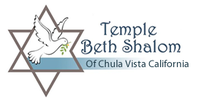- I put it to the consciences of many silent Christians, who have never yet made known to others what God has made known to them—How can you be clear from guilt in this matter? Do not say, “Am I my brother’s keeper?” for I shall have to give you a horrible answer if you do. I shall have to say, “No, Cain, you are not your brother’s keeper, but you are your brother’s killer.” If, by your effort, you have not sought his good, by your neglect you have destroyed him.”[1]
The subject of the chokehold has a remarkable history. In 1982, there was the famous City of Los Angeles v. Adolph Lyons, 461 U.S. 95 (1982). The case involved bears a striking similarity to the George Floyd case. In 1976, four white police officers of the LAPD stopped Adolph Lyons for driving with a broken tail light. Lyons was unarmed and posed no threat. The officers drew their guns; one officer made him spread his legs and placed his hands-on top of his head. After being frisked, Lyons put his hands down. That prompted one officer to grab his hands and slam them against his head. After Lyons complained that holding his car keys had caused him pain, a police officer put him in a chokehold until he finally lost consciousness. As he laid unconscious, faced down with soiled underwear and blood flowing from his mouth, the officers waited till he was revived and ticketed him with a traffic citation and sent him on his way.
Seven years later, Lyons fought for justice and for damages against the LAPD chokehold policy. Apparently, from 1975 to 1983, sixteen people, including 12 African-Americans had been killed by the LAPD using chokeholds. The Supreme Court took the case and ruled 5-4 that the chokehold was permitted.
Thurgood Marshall was an African American was the first African-American judge who served on the Supreme Court and he wrote the dissenting view, a view that police departments must follow in the future:
- “The city [of Los Angeles] instructs its officers that use of a chokehold does not constitute deadly force.” Nevertheless, “no less than 16 persons have died following the use of a chokehold by an LAPD police officer,” 12 of whom were black men. According to Justice Marshall, “the evidence submitted to the District Court established that, for many years, it has been the official policy of the city to permit police officers to employ chokeholds in a variety of situations where they face no threat of violence.”[2]
I recall as a young yeshiva student how Rabbi Shlomo Cunin, the head of Chabad operations of the West Coast, was once having a farbrengen (where Hasidim make lots of noise and get drunk). A neighbor called the police, and they placed Cunin (a big man who could have played linebacker for the Rams) in a chokehold, and he lost consciousness.
I knew of a Jewish man named Liberty back in the late sixties who also died from a chokehold. LAPD was notorious for using it. Nobody from his family pleaded for justice, it was swept under the carpet.
The place: New York.
The year: 2014.
In July of that year, the NYPD arrested Eric Garner on suspicion of illegally selling single cigarettes on Staten Island. Officer Daniel Pantaleo placed Garner in a chokehold where Garner, like Floyd, cried out, “I cannot breathe!” eleven times before losing consciousness; he died.
One would think the liberal state of California would have banned chokeholds decades ago, yet the State of California allows a similar technique to the chokehold called, the “carotid restraint,” which squeezes the arteries instead of the windpipe. In 2014, it was still being used.[3]
There are many more examples we can point to, but the time has come for all communities—liberal and conservative to ban chokeholds once and for all. It has proven to be a weapon of choice against the African Americans accused of crimes—often trivial crimes at that.
Let us work together in eliminating this practice. It will not solve the problem of racism in our society, which I might add is not limited to race, religion, or creed. (a topic I shall address in my next article). But if we take this step, we can make amends for the death of George Floyd, who did not deserve to die.
[1] C.H. Spurgeon and T. Carter, 2,200 Quotations: From the writings of Charles H. Spurgeon: Arranged topically or textually and indexed by subject, Scripture, and people (Grand Rapids, MI: Baker Books, 1995), 228. Vol. 33. 672.
[2] https://www.vox.com/2020/5/30/21274697/supreme-court-police-chokehold-george-floyd-derek-chauvin-lyons-los-angeles
[3] https://abc7news.com/grand-jury-police-daniel-pantaleo-chokehold/424502/

 RSS Feed
RSS Feed
